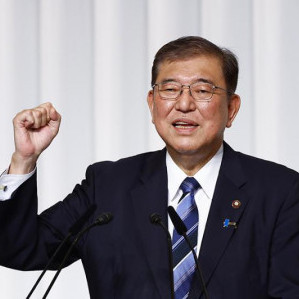On August 23, Russian President Vladimir Putin took part in an extraordinary meeting of the CSTO Collective Security Council via videoconference. The event was initiated by the Russian leader proper. Despite the closed communication format between CSTO heads of state and government, President Putin's Press Secretary Dmitry Peskov disclosed that like other participants in the meeting, the Russian leader expressed deep concern over the situation in Afghanistan and potential threats coming from that country.
It was noted at the meeting that one should prevent the infiltration of radical Islamism into the CSTO member states and their citizens' recruitment into extremist groups, including via social media and the Internet. In this regard, Vladimir Putin expressed particular concern that ISIL (terrorist organization banned in Russia – ed. note) retains a fairly strong position in Afghanistan.
Moscow's high anxiety over the Afghan issue is also corroborated by Vladimir Putin's having stressed that the situation around Afghanistan is directly related to Russia's national security, when he addressed the August 22 meeting with members of the United Russia party. He drew particular attention to the stance of Western countries, with their persistent suggestion that refugees from Afghanistan be placed in the countries of Central Asia (CA) before obtaining visas to the United States and Europe. "Does that mean that they can be sent without visas to those countries, to our neighbors, while they themselves don’t want to take them without visas," the Russian leader said, calling this approach humiliating towards people.
As such, be it noted, some of these Central Asian states are close allies to Russia, without any visa restrictions. But borders with them are thousands of kilometers long, which makes it hard to maintain overall control and enables militants from Afghanistan to disguise as refugees and penetrate first into Central Asian countries, and then into Russia. It is no mere chance in this regard that President Putin has said the following a day earlier: "We do not want fighters disguised as refugees to turn up in our country. We do not want to repeat what happened in the 90s and mid-2000s, when there were hostilities in the North Caucasus. We had these horrors that are now being repeated on the territory of Afghanistan. All of this happened not so long ago."
It is quite obvious that Moscow, as its officials have repeatedly stated, does not intend to interfere in the domestic affairs of Afghanistan, much less to introduce Russian troops into this country. This was once again stated by President Putin, speaking at the August 24 congress of the United Russia party. "Obviously, we are not going to interfere in Afghanistan’s internal affairs, and we are even less likely to engage our army in an all-against-all conflict, which I think is unfolding there," he said.
At the same time, Russia's recent diplomatic activity along the Afghan track is beginning to bear fruit. As can be seen in the statements by Western politicians and representatives of the Taliban movement (banned in Russia – ed. note), Moscow is now perceived as a likely mediator in a dialogue between Kabul and the outside world.
Indeed, Russia, with its endeavors to strengthen its influence in Afghanistan over the last three years, has apparently lived to see the recognition of this goal having been achieved. But so far, according to a number of Russian experts, it is still premature to draw any conclusions, as external players may attempt to use Moscow's mediation to guard their own interests that may come into conflict with those of the Russian Federation.
One of those would-be "confessions" can serve as a confirmation of this to some extent. It was recently made by British Foreign Secretary Dominic Raab in an interview with The Sunday Telegraph newspaper. According to the British diplomat, London is going to "have to bring in countries with a potentially moderating influence like Russia and China." The statement came amid Western fears that Moscow and Beijing could occupy the vacuum in Afghanistan. By the way, Mr. Raab himself noted that interaction with Russia and China is "uncomfortable" and provisional.
Moscow seems to be hardly needing such confessions from Britain, which, along with the United States, started the war in Afghanistan in 2001 with its ultimate chaos and the Taliban conquest of power. Russia is able to determine its own foreign policy moves, proceeding from its national security interests in the first instance. Without any "invitations" from any third countries, including the same Great Britain, which would like to restore its former influence in Afghanistan by proxy.
Moscow certainly has an exceptional interest in resolving that country's situation, since it "poses a potential security threat," as President Putin put it. Due to this precise reason, Moscow keeps an eye on Afghanistan and has made certain progress in establishing adequate relations with the same Taliban. It is notable that at his first press conference in Kabul, Taliban spokesman Zabihullah Mujahid said there are three countries whom the movement has established "very good relations" with: Russia, China and Pakistan. And just the day before, representative of Taliban's Qatari political office Suhail Shaheen said the Russian side might contribute to promoting peace and reconciliation in Afghanistan. Russia's role has always been welcomed and appreciated, Shaheen said, answering a question about whether the Taliban had asked Russian ambassador in Kabul Dmitry Zhirnov to mediate in negotiations with the dissident armed forces.
However, this does not mean Moscow will rush headlong to help the Taliban solve Afghanistan's domestic problems. Dmitry Peskov made this clear last Monday, saying that, "of course, there is no intention to interfere in these events." In keeping with Mr. Peskov's words, Russia is not going to mediate between the Taliban and its opponents in that country, particularly those currently offering resistance to the Taliban in northern Afghanistan's Panjshir Valley.
We note finally that the Afghan situation is changing with each passing hour, so let's abstain from making any forecasts about the future of Afghanistan, a thankless job as it is.









